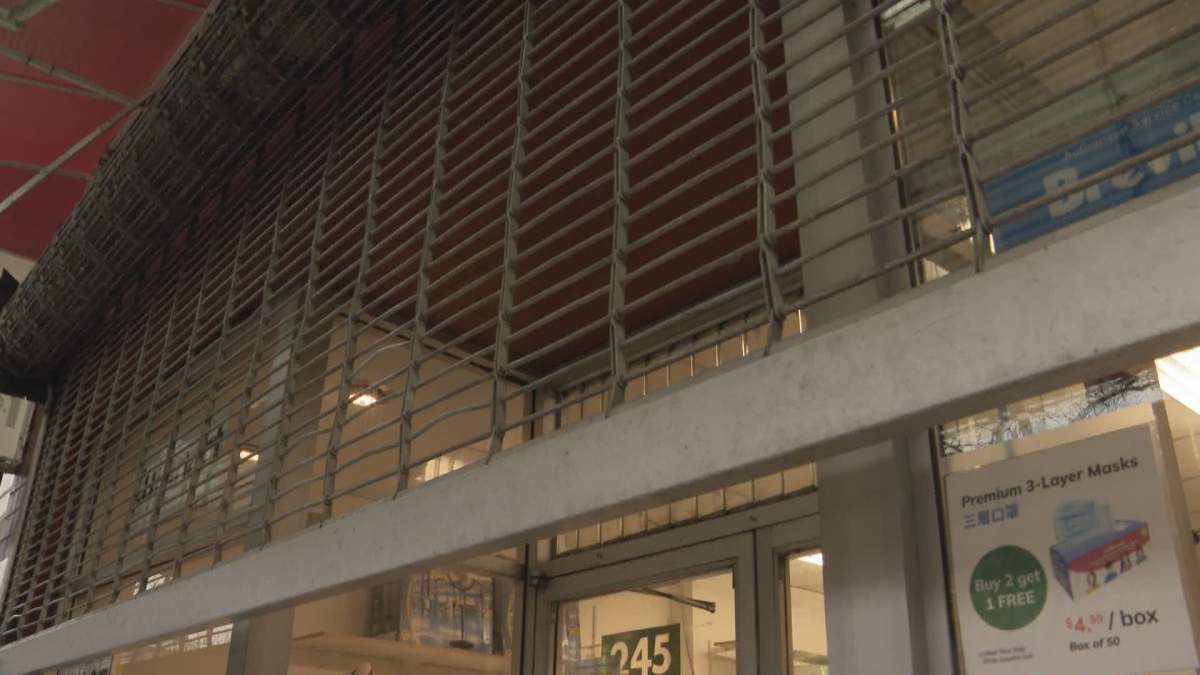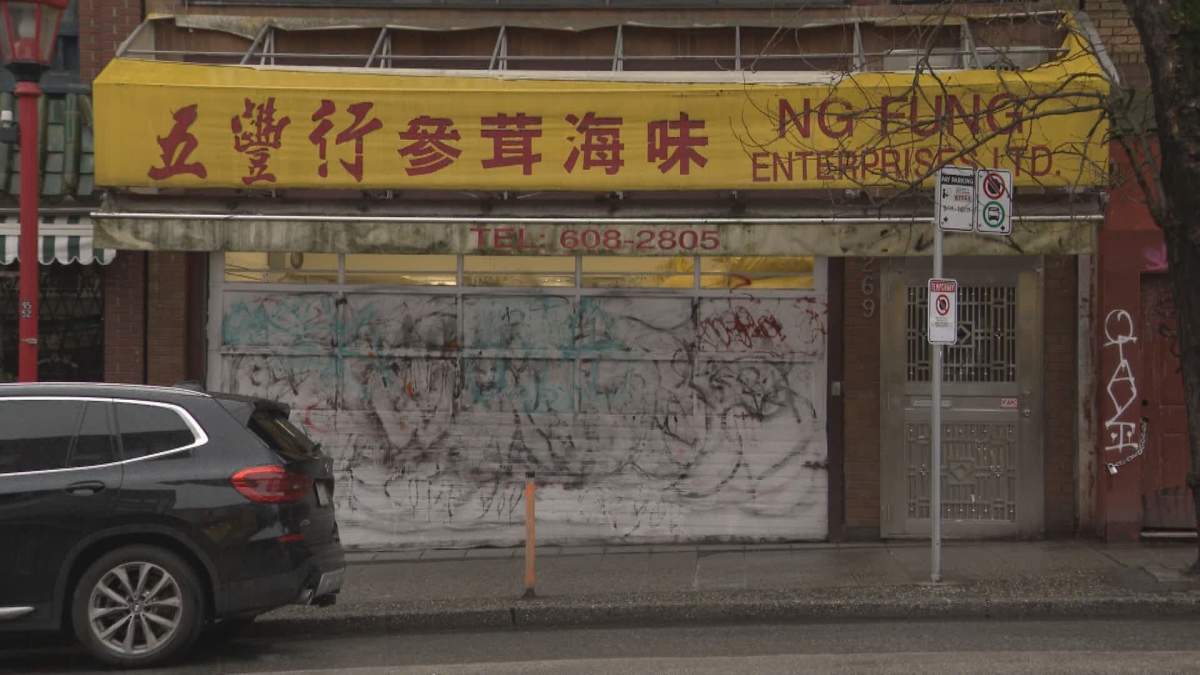As Vancouver Police deal with an increase in business break-ins during the COVID-19 pandemic, one city neighbourhood became almost fortified after it was shattered by the same broken glass more than two decades ago.

Each morning in Chinatown, shopkeepers start their day by pulling up the rolling shutters or metal draw gates that protect their storefronts.

According to the Vancouver Chinatown BIA, about 80 per cent of stores have added extra security.
“It hasn’t always been like this in Chinatown,” said Ross Lam with Forum Home Appliances.
When his family-run business opened on East Pender in 1988, Lam said the street was one of the busiest blocks in Vancouver – second only to Robson and Thurlow for shoulder-to-shoulder foot traffic.
“Since then, Chinatown’s changed and we’ve kind of had to change with it,” Lam told Global News.
In the late 1990s and early 2000s, Lam said Chinatown was hit with consistent break-ins and smashed windows.
Retired Vancouver Police officer and current Odd Squad member Doug Spencer remembers walking the streets at the time.

Get breaking National news
“They were paying for broken glass almost every night,” he recalled.
“I used to go to all those break-ins and broken glass in uniform.”
To close the door on crime, Lam and other merchants installed roll-up gates and shutters because it was cheaper than routinely replacing the glass.
Lam said customers can see through Forum’s gate to check out their store displays so it’s not as obtrusive as the solid shutters.
“It’s a fortress, Chinatown has really fortified over the last 20 years.”
- Australian teen charged with making hoax mass shooting calls to U.S.
- Chicago man arrested, charged in killings of ex-wife and her husband: What we know
- Minnesota, Twin Cities file lawsuit to stop ICE surge after fatal shooting
- Man charged after over 100 human skeletal remains found in Pennsylvania home
In downtown Vancouver, commercial break and enters with broken glass increased 24 per cent between 2019 and 2021, according to the VPD.
Spencer said Chinatown can be seen as a bellwether for storefront security in the city, and more businesses may be forced to follow its lead and roll down.
“It worked in Chinatown right,” Spencer told Global News Sunday.
“They got to do it to stay afloat for sure, the price of glass and the repair and everything, it’ll wipe you out.”
SFU criminology professor Martin Andresen said Chinatown is unique in Vancouver with its close proximity to the Downtown Eastside, and as a former area of racial segregation.
Andresen said he understands why businesses in the community have engaged in this target mentality although he’s not a fan of a “fortress society.”
“We need more social services to support those who need it, leading to less need for a fortress society down the road,” he told Global News.
Spencer believes the only way to avoid a more shuttered city is to ensure those struggling with mental health and addiction issues receive the treatment they need.
“They don’t care if they see an unprotected window. They’re going to break it even if it’s for five bucks you know, they need their drugs,” said Spencer.
“It’s going to perpetuate and it’s getting worse and worse.”










Comments